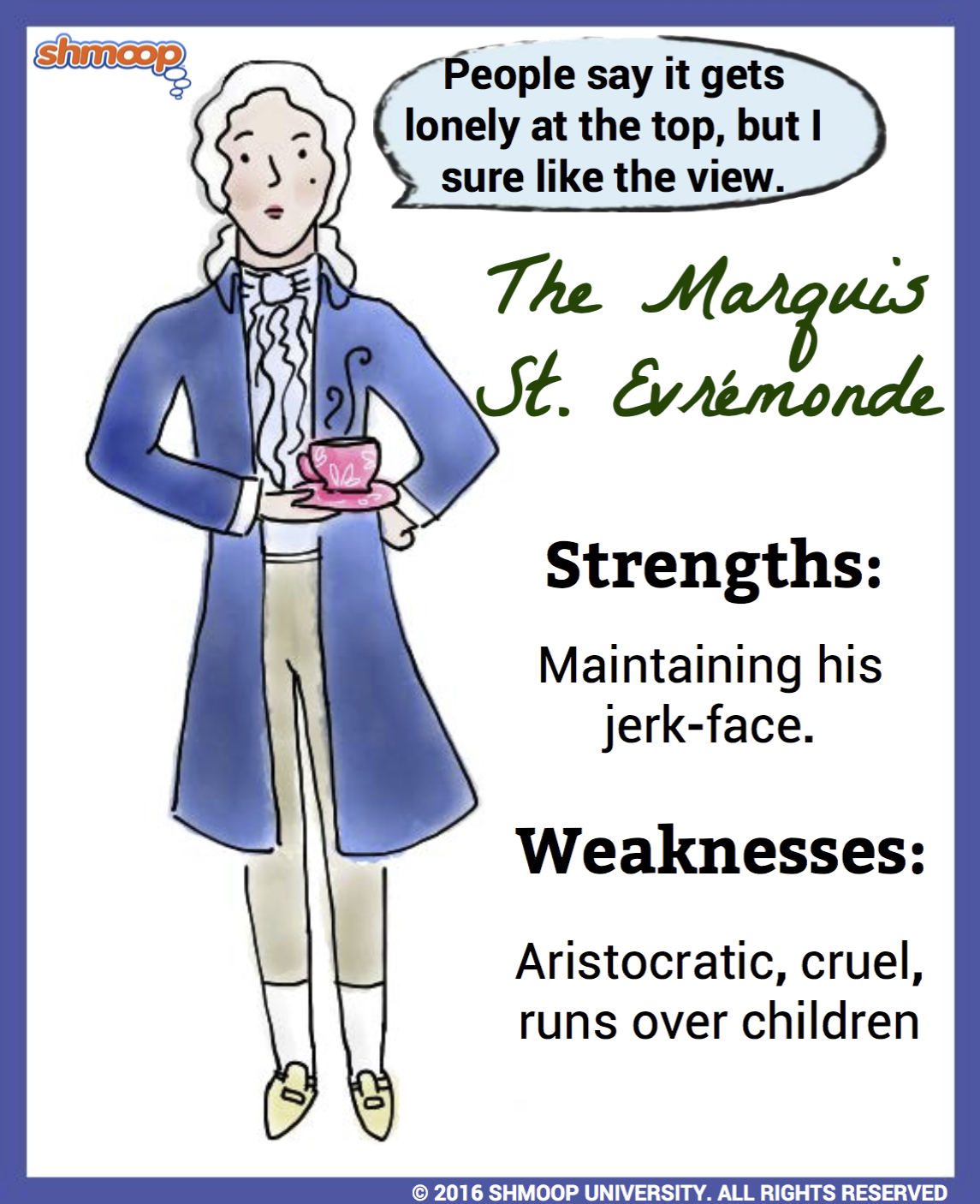Character Analysis

(Click the character infographic to download.)
Aristoc-Rat
He was a man of about sixty, handsomely dressed, haughty in manner, and with a face like a fine mask. A face of a transparent paleness; every feature in it clearly defined; one set expression on it. The nose, beautifully formed otherwise, was very slightly pinched at the top of each nostril. In those two compressions, or dints, the only little change that the face ever showed, resided. They persisted in changing colour sometimes, and they would be occasionally dilated and contracted by something like a faint pulsation; then, they gave a look of treachery, and cruelty, to the whole countenance. (2.7.15)
It’s a cold description: the Marquis’s very nose seems to hint at his absolute inhumanity. Everything about the Marquis, in fact, seems positively inhuman. Even his carriage is driven "with a wild rattle and clatter, and an inhuman abandonment of consideration not easy to be understood in these days" (2.7.17). The Marquis St. Evrémonde, we learn, is not a man to be pitied.
Pity may be the last thing that readers are inclined to give to this character. After all, he played a key role in locking Doctor Manette up for life. Charles suspects that he’s been trying to lock his own nephew (that would be Charles) up as well. His chateau exploits the poor to the point of breaking, and he shows no sympathy at all for the fates of those struggling to provide his estate with more money. He even runs over small children in the street. All in all, he’s a thoroughly detestable guy.
He’s also the only true version of the French aristocracy we see in the novel. Because his character has been depicted as so monstrous, it’s understandable that people would want to murder him in his sleep. In fact, people do murder him in his sleep.
Here’s the catch, though: if he stands in for all French aristocrats, aren’t all French aristocrats equally monstrous? Wouldn’t Madame Defarge be right when she says that she wants to see "all the race" exterminated? It becomes pretty hard to critique violence when the victims of that violence seem to deserve it. In other words, the flatness of the Marquis’s character actually gives senseless violence a sort of rationale: the aristocrats are evil. End of story. But is this really the take-away message the novel is trying to send?